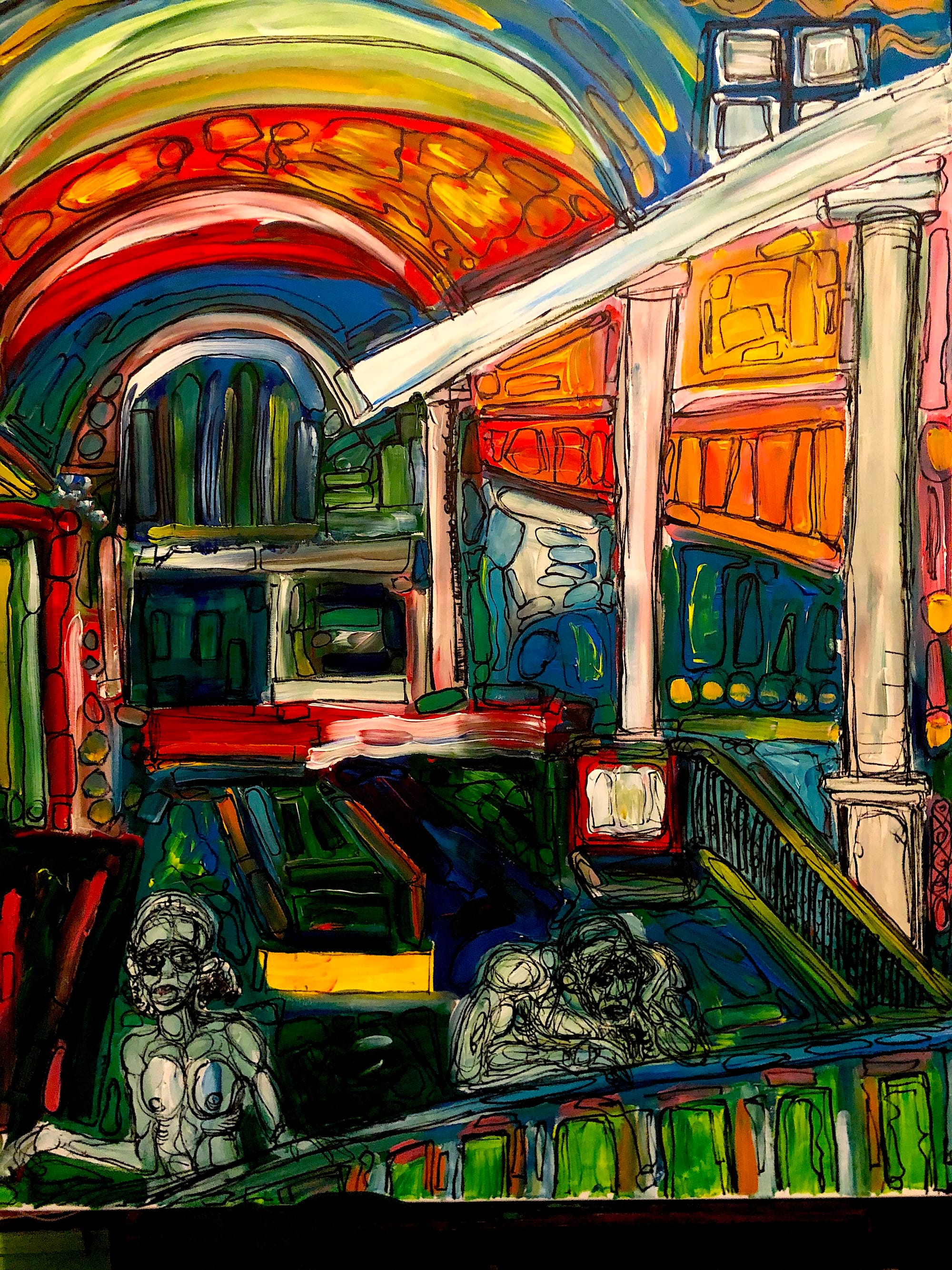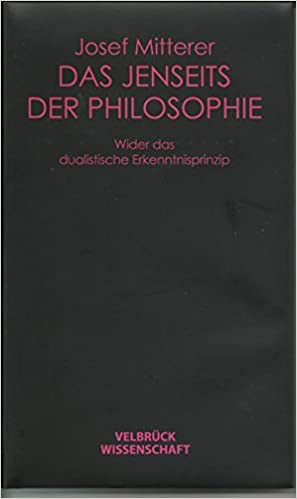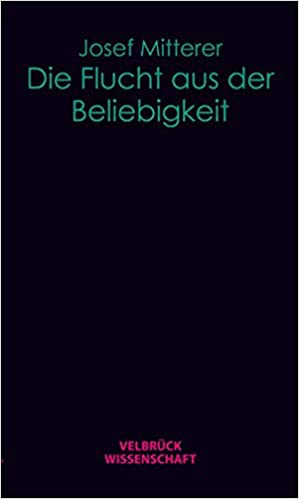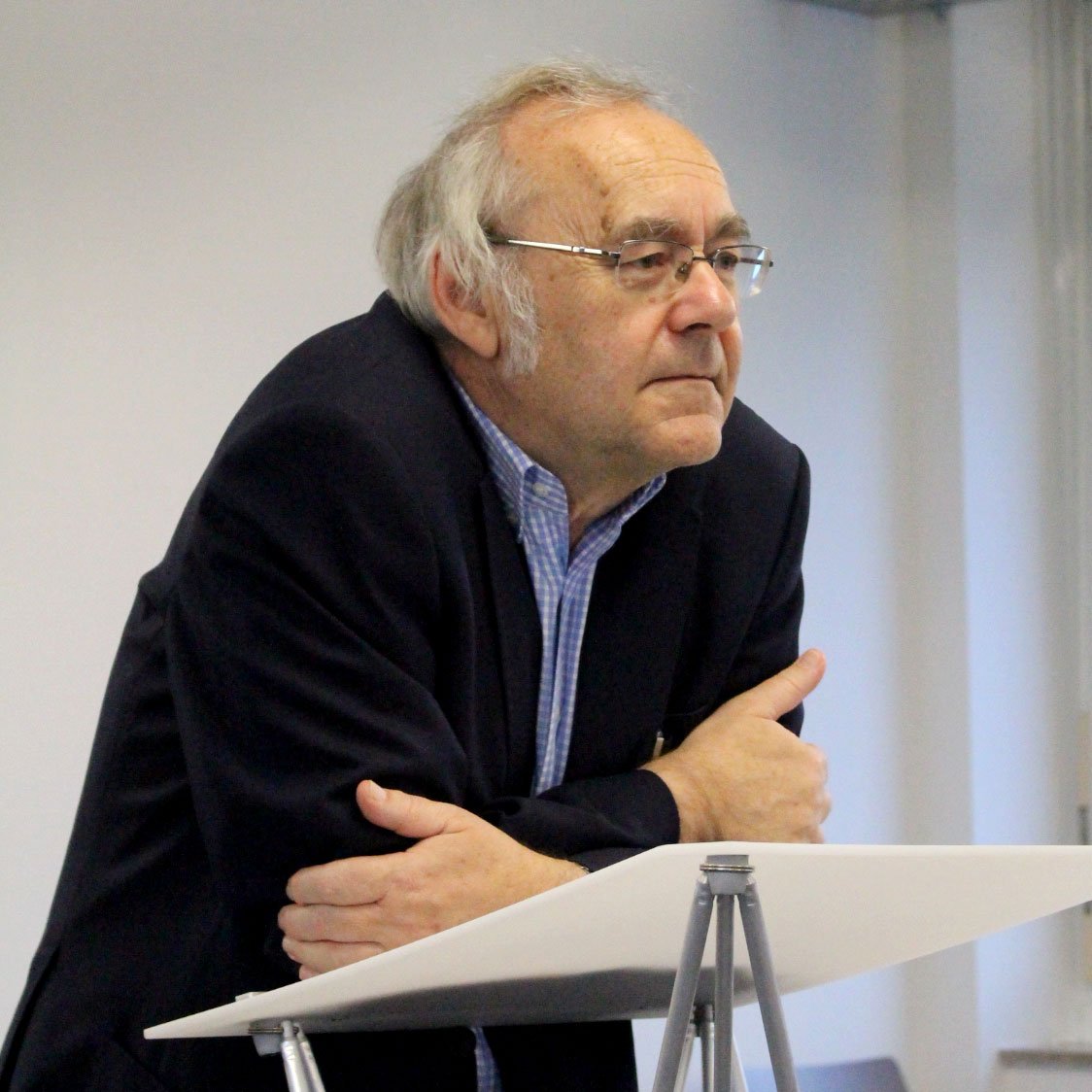Josef Mitterer: The Beyond of Philosophy and The Flight from Contingency: Introduction to the new serialisation

By Josef Mitterer

When Richard Marshall offered me to serialize my philosophy, I was in disbelief and rather sceptical whether I should follow his idea. But then I remembered the comic mags of my childhood, Schundhefte in German, with heroes like Prince Valiant or Tarzan. They started out with “What happened so far” and ended with “to be continued” and a cliffhanger ... It didn’t take long and I could not resist the temptation.
My name is Josef Mitterer and I am a philosopher from Austria. I was still at school when I first encountered philosophers at the European Forum in Alpbach, a village in the Tyrolean Alps. There I watched two philosophies in action: The Critical Rationalism of Karl Popper and a transcendental philosophy whose Post-Nazi representatives had prevented the return of the exiled philosophers of the “Vienna Circle” to Austria.
The sympathies were clear, but I did not want to be socialised into the usual philosophical distinctions and hence chose to study sociology at the University of Linz, the only one without a philosophy department. Eventually, I succumbed and took up philosophy at the University of Graz, then the centre of Analytical Philosophy in Austria.
There I listened to philosophers such as Arthur Danto, Donald Davidson, Carl Hempel, Hilary Putnam, Chaim Perelman, Ferruccio Rossi-Landi amongst others and took seminars with Stephan Körner, Peter Winch and Brian McGuinness. Several winters I spent at the Inter-University Centre Dubrovnik and joined courses with Michael Dummett, W.v.O. Quine, Bill Newton-Smith, Dagfinn Follesdal, Jonathan Barnes and Keith Lehrer. First attempts to elaborate and discuss my ideas met with incomprehension and massive rejection. I therefore went for a semester to Berkeley, hoping Paul Feyerabend would give me the encouragement to continue – which he did. Well-meaning professors warned me against studying with Feyerabend, who had just made himself an outsider with Against Method, as there would be nothing to learn from him. And yet I hardly ever saw students getting so involved and giving their best as in his seminars.
After completing my PhD, I shared my time between working in the travel industry and continuing to philosophize, lecturing and publishing a few articles. When I was unexpectedly offered a job at the University of Klagenfurt in Austria, I gladly accepted and eventually became a tenured professor. The further away your ideas are from the mainstream, the more important is an affiliation with academia. Without it the German and Polish editions of “The Beyond of Philosophy” and “The Flight from Contingency” would not have received the attention they got.
What are the issues? Philosophers draw their grand problems – such as the problems of reality, truth and reference – from presuppositions. And they put their cognitive efforts into solving these problems. How did they arrive at these presuppositions? Aren’t they preceded by suppositions? How to turn suppositions into presuppositions? Conditions into preconditions? The presuppositions are out of question. Can we turn them back into question? Are they sacrosanct? God-sent? Given once and for all? Or do we make them anew whenever we employ them?
Amending a metaphor from Wittgenstein: I do not want to show the fly the way out of the fly bottle. I want to know how the fly gets into it.Rather than proposing new solutions for old problems, I try to create new ones.
A lot of philosophy is about distinctions. The most dominant is between language and reality, description and object, between what we talk and what we talk about, between our opinions and what they are about ...That this distinction is a presupposition is out of question. How the sides of the distinction relate to one another is in question and a matter of controversy. If you give priority to reality – then you are a realist, and if you favour the language side then you are likely a constructivist or an idealist.
I try to catch the panorama of philosophy in a simple phrase: Either there are distinctions, therefore you make them (realism, dogmatism) or you make distinctions and therefore they are (constructivism, idealism). Are these distinctions a precondition of rational discourse? Is the alternative an “anything goes”, a mix-up, an irrational hotch-potch? Another presupposition is the idea of reference. Is this idea inevitable? Are thoughts directed towards the objects of thoughts which precede our thoughts? That we refer to what we talk about seems a matter of course. Does this mean our thinking is directed backwards? Has the idea of reference become an inherent feature of our language? Or is this direction optional?
What about the pursuit of truth? Can we escape contingency, arbitrariness? With the help of truth? Or is truth an argumentative tool to immunize our own opinions and criticize those of the opponents? Are truth-theories helping to establish and dogmatize the status quo, the opinions we hold here and now? Is reality the present state of things in flux? Are ontologies pre-existing conditions? Or can we ask: How to ontologize, realize, entify, fundamentalize? Is truth-oriented philosophy an argumentation technique? Which can justify any opinion we may hold and criticize any opposing opinion? Is the education towards the truth an education towards the truth of the educators?
Is the philosophical vocabulary exhausted, in crisis? The current fake news debate stimulates philosophers to weigh into a discussion about stating, making or blurring distinctions such as those between fact and opinion, truth and falsehood, reality and illusion, between what is and what is not. There is a flurry of opposing truth-claims uploaded with an inflationary use of expressions like “true”, “real”, “really true” and “true nature”, “in fact”, “in truth”, “in reality”, “real facts” and more which makes rhetorical book-keeping difficult.
Truth as a regulative principle seems to fail and the traditional philosophical vocabulary is at stake. In the old days, when true was true and false was false, when “fake news” was unheard of, the world was still in order. The only remedy offered by truth-conscious, truth-oriented philosophers is more of the same: “Tell it as it is!”, “Report the facts as they are!”, “Make clear distinctions!” What this simply boils down to is: More exclamation marks!!! What are the options?
In my writings, I try to be transparent and not transcendent. The reader, and not the author, will decide, whether they make sense or nonsense. The only thing I shall ask you is to keep in mind that whatever it is, I have written it slowly. A lot of ink & paper has gone to waste for it.
The translations have gone through various stages over the course of several years. Friends ; colleagues read and/or even provided drafts, suggested corrections, offered support and critical advice and above all encouragement: Barry Allen, David Bloor, Michael Krausz, Jonathan Rée, Bert Koegler, Tom Rockmore, Christian Wenzel and Alan Gross. In Austria: Katharina Neges, Michael Schorner, Sebastian Neges, Franz Ofner, Thomas Hainscho. Alexander Riegler and Stefan Weber have previously published short pieces in special issues of the journal “Constructivist Foundations”. My friends in Poland: Krysztof Abriszewski, Ewa Bińczyk, Marzenna Cyzman, Aleksandra Derra, Bozena Choluj and Dominik Lewinski.
Richard Marshall will serialize my ideas each week.
Below is what we'll cover.
The Beyond of Philosophy
Introduction: Non-relativistic presuppositions of relativism
Part I
Development of Non-dualizing Speech
Part II
Critique of Dualizing Speech
Interlude: On Interpretation
The Flight from Contingency
Preface
Introduction
The Flight from Contingency
Appendix I:Talking About. A short manual for dualistic argumentation.
Appendix II: Radical Constructivism: What difference does it make?
About the Author
Josef Mitterer is an Austrian philosopher.

In two books, The Beyond of Philosophy and

The Flight from Contingency he develops a Non-dualizing Philosophy of Change.
Also of possible interest:
The End Times series of interviews with contemporary philosophers here.
Huw Price's Flickering Shadows series.
NEW: Steven DeLay's Finding meaning series
